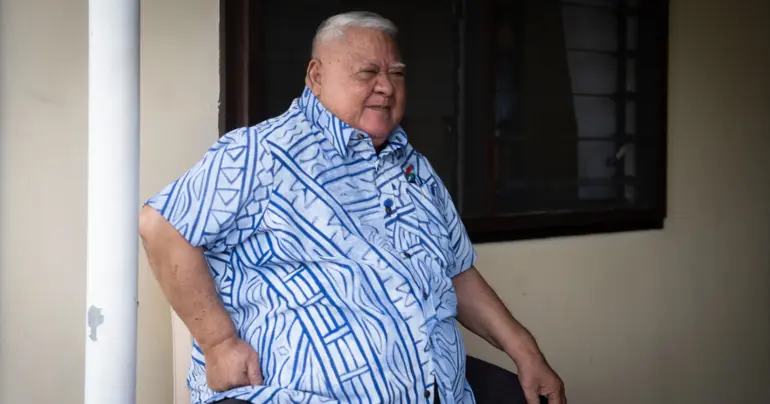Blacklisted Samoa contributes 0.04 per cent of global tax losses: report
 By Sapeer Mayron
•
24 November 2020, 12:00PM
By Sapeer Mayron
•
24 November 2020, 12:00PM
European Union blacklisted countries like Samoa contribute less than two per cent to the world’s tax losses, according to a new report by lobby group,Tax Justice Network (T.J.N.).
In a study they claim is the first of its kind, T.J.N. reports the global losses caused tax evasion is worth US$427 billion a year.
But the 12 countries, including Samoa, that are on the E.U.s list of non-cooperative jurisdictions, contribute 1.7 per cent of the global tax losses, or US$8.5 billion.
Meanwhile, 36 per cent, or around US$154 billion in annual lost taxes, are lost through E.U. member states, the report states.
“The Tax Justice Network has long criticised17 the EU’s blacklist for ignoring major tax havens while focusing on jurisdictions that are secretive but play an insignificant role in the global economy,” T.J.N. states.
“The State of Tax Justice 2020 reveals that two jurisdictions blacklisted by the EU, Palau and Trinidad and Tobago, while non-cooperative with international tax regulations, did not create any observable tax losses for other countries.”
According to T.J.N, Samoa loses $161.6 million tax dollars because of global tax evasion by private individuals.
Based on its analysis, Samoa by itself is responsible for just 0.04 per cent of global tax losses, with New Zealand, Singapore and China its trading partner most responsible for Samoa’s vulnerability to illicit financial flows.
Robert Bell, the founder of Samoan remittances facilitator KlickEx, said he has long believed the E.U. blacklist unfairly disadvantages Samoa.
“It does raise questions as to why they (the E.U.) like to put scapegoats on there,” he said.
“Everybody can do better but when they have such glaringly asymmetric balances of where the problem is, why they pick on someone like Samoa which is hardly a money laundering hotbed, I don’t see the merit of that.
“Being on the blacklist actually slows you down from compliance because you have credibility issues.”
The remittances industry is particularly hampered by Samoa’s blacklisting.
It causes foreign banks to stop having relationships with banks in Samoa, and stops more companies entering the remittances marketplace, leaving the country without much competition in the industry which keeps prices high, Mr. Bell said.
“The losses sit out in that sort of unmeasurable sector. The ease with which Samoan businesses, particularly remittances businesses can do business, where a bank says oh, Samoa does seem to be a on a watchlist, and because of that you are less able to have bank accounts in the United States, Austrlia or New Zealand, that reduces competition and increases prices.
“Back in the day before KlickEx came, the average prices were 14 or 15 per cent for money coming into Samoa.
“Through competition we have managed to reduce that to seven or eight per cent.”
Remittances are legitimate sources of money, Mr. Bell says, with almost no chance of someone using the remittances system to launder illicit money.
He says the biggest money laundering risk is someone making money under the table in New Zealand and sending it home to Samoa without declaring and paying taxes on it, but the risk is worth no more than $100 per person per year in taxes.
But white collar crime costs the world trillions of dollars in lost taxes, with majority of the illicit activities happening in the United States and Europe.
“What does the E.U. know that we just can’t see no matter how deeply we look?,” Mr. Bell asked.
“Small countries are bearing the brunt of a witch-hunt, which from our perspective, we don’t see it in the money flowing into Samoa we are responsible for monitoring.”
The Ministry of Finance, Central Bank of Samoa and Samoa International Finance Authority did not respond to emailed requests for comment.
Previously, former Chairman of S.I.F.A. Tuatagaloa Alfred Schwalger has said the blacklist makes it harder for S.I.F.A. to be profitable.
Samoa was added to the list, officially the list of “non-cooperative jurisdictions for tax purposes” in 2017. The standards are set by the Organisation for Economic Development and Cooperation (O.E.C.D.)
In the authority’s 2019 annual report, new company registrations declined 30 per cent because of the strict de-risking regulations imposed in order to eventually get taken off the list.
The report takes some pride in noting that 85 per cent of already registered companies renewed their registrations in 2019.
“Despite the many changes in the world of international finance and wealth management, S.I.F.A. managed to achieve excellence in most areas of off-shore financing.”
As of October 2020, Samoa sits alongside American Samoa, Anguilla, Barbados, Fiji, Guam, Palau, Panama, Trinidad and Tobago, US Virgin Islands, Vanuatu and Seychelles on the blacklist.
Official E.U. documentation states Samoa remains on the list because it has not “resolved” issues around its “harmful preferential tax regime,” or its compliance with criterion 3.1, which it was meant to have done in 2018.
Criterion 3.1 refers to implementing anti Base Erosion and Profit Shifting measures, designed by the O.E.C.D in a series of 15 actions that deal with tax avoidance, improving international tax rules and building a “more transparent” tax environment.
 By Sapeer Mayron
•
24 November 2020, 12:00PM
By Sapeer Mayron
•
24 November 2020, 12:00PM











